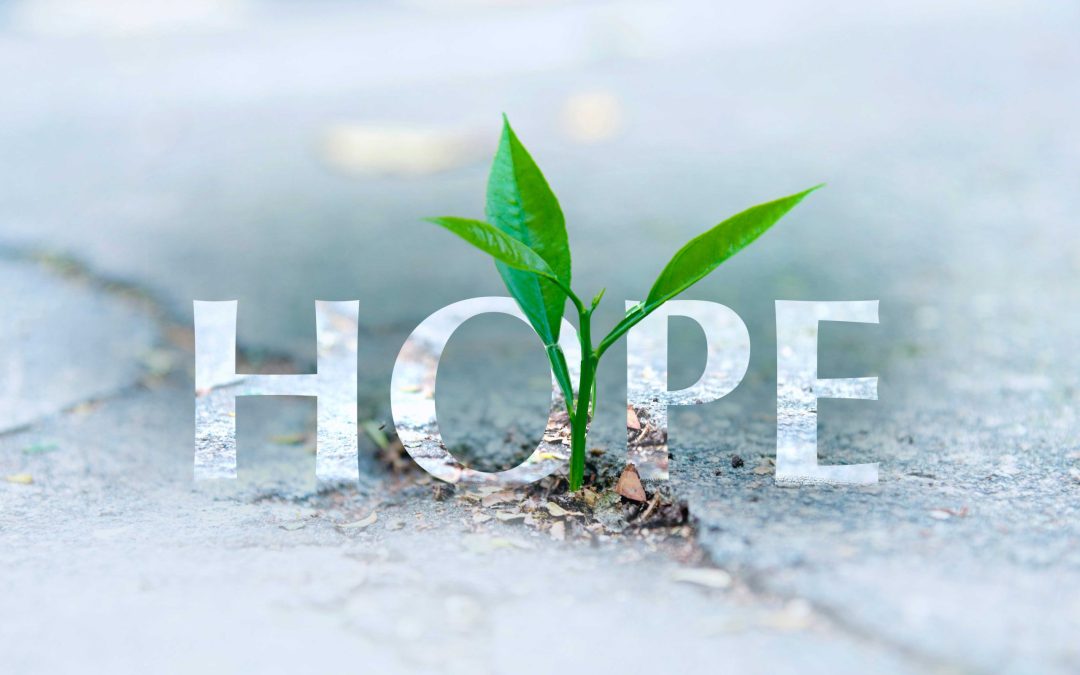“Hope is the belief that your future can be brighter and better than your past and that you actually have a role to play in making it better.” Hope Rising by Casey Gwinn and Chan Hellman
“Hope Springs Eternal” is a phrase from the Alexander Pope poem An Essay on Man.
PROVERB
…it is human nature always to find fresh cause for optimism.
Oxford Dictionary
Indeed it would seem that hope, as defined by Gwinn and Hellman, does continue to arise even in the worst of situations. From a survival perspective it makes sense that a species should not easily give up on living. In light of the equally, or perhaps more, consistent negativity bias’ tendency to turn our attention toward the negative some counterbalance would be supremely helpful. Hope would seem to be the perfect candidate. But maybe it’s not that simple. I think it may all depend on the foundation on which hope is built.
I propose that there are 5 varieties of hope. They are arranged below from weak to powerful in terms of how effective I believe they might be in motivating actions that could bring about a better future.
1. Wishful Hope: “I hope things will improve but I don’t know what to do to make this happen so I can’t do anything to improve the situation.”
Many people feel overwhelmed by the scale, number and complexity of issues facing the world today. Their experience has not prepared them to tackle such problems and they feel a sense of helplessness. Some might even abandon hope altogether and seek solace in substance abuse or antisocial behaviour.
2. Hit and Miss Hope: “I hope things will improve and I’m going to do things to help make it happen. Although I am not sure what will work I am willing to try to do something.”
Not wanting to feel helpless people may engage in a variety of actions that may seem to them to have a chance of improving circumstances. If one approach fails they may try another unrelated initiative. It is highly unlikely that this variety of hope will result in lasting improvements. Without a cohesive foundation unorganized activities stand little chance of combining to produce a positive difference.
3. Hypothetical Hope: “I hope things will improve and I’m going to do what I can based on what I believe to be the nature of the problem. I will take action based on this theory.”
People often latch onto explanations and solutions that are in agreement with their existing beliefs and support their personal worldviews. But subjective beliefs and worldviews may be out of sync with the actual nature of reality. If the hypothesis is faulty it can lead to actions that make matters worse. Even such extreme actions as may be taken by adherents to certain conspiracy theories fall into this category of hope. These people hope for a better future too and they have a theory about how to make it happen.
4. Scientific (Classical Newtonian) Hope: “I hope things will improve and I have a clear plan for making it happen predicated on a science-based understanding of the causes of the problem.”
Measures undertaken with this approach are going to be more reliable than those attempted with Hit and Miss Hope or Hypothetical Hope. However, if they are based on the faulty assumption that nature consists of separate, independent objects interacting with one another in billiard-ball reactions even the best intended strategies may fail. History is full of examples where unjustified faith in the science of the day turned out to be disastrous in the long run. Beginning at around time of the Enlightenment humans, emboldened by recent scientific advancements, began to see nature as something to be conquered and exploited for human purposes. We are living now with the results of that hubris.
5. Holistic Hope: “I hope things will improve and I have a deep understanding of the interdependent nature of reality with which I can design and implement strategies with a high probability of contributing to a better future.”
When actions are based on an up to date scientific understanding of nature (as consisting of webs of interacting, interdependent, dynamic relationships) they have a good chance of success because they are working with nature’s ways rather than against them. Evidence of the power of holistic approaches to make a better world include sustainable agriculture, reforestation programs, and many successful efforts to reverse the damages done to the environment. These endeavours are working because they are based on the big-picture, long-term perspective of the interdependent mindset.
If it is true that Holistic Hope is the most hopeful variety of hope then the understanding that we live an interdependent existence is crucial to solving the issues we face in the world today. The Hopeful Mindset presents a detailed explanation of interdependence and its implications for tackling the pressing problems of the world today.

